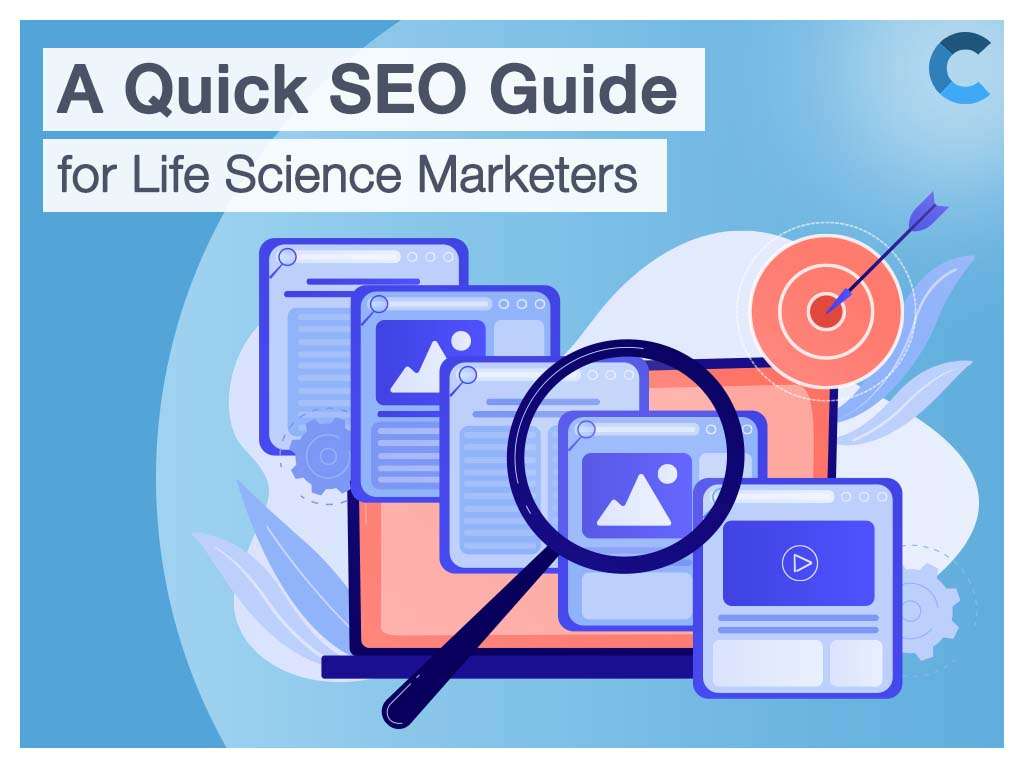Beginning with search engine optimization (SEO) can be intimidating. The introduction of new technical terms. Interminable duties to complete. And to make things worse, SEOs themselves don’t seem to be able to come to a consensus. At the beginning, it was frustrating for me, and often it still is. And I can only imagine how it is for many others.
Search engine optimization as a concept, however, is actually rather simple. In reality, there are only three stages. And in this blog post, I’m going to talk about what matters most.
Outline
Toggle1. Discover Search Questions People are Asking to Define your SEO and Keyword Strategy
Search engine optimizers refer to this investigation as “keyword research.” You need a keyword research tool to accomplish this. These tools scour massive databases for information that matches a user’s query.
You may get going right away using one of the several available free of charge keyword generators, or use more sophisticated keyword research tools as Ubersuggest, SEMrush or Ahrefs. Think of a single term that sums up your field and enter that.
Importance of Keyword Research in Life Science SEO
So, if you are a marketer in life sciences, you might type in “proteomics.” Then, our free keyword tool will return a list of the top keywords that include that term. It will also show you the potential competition you may face for each keyword, including search volume, cost-per-click (CPC), paid, and search difficulty.
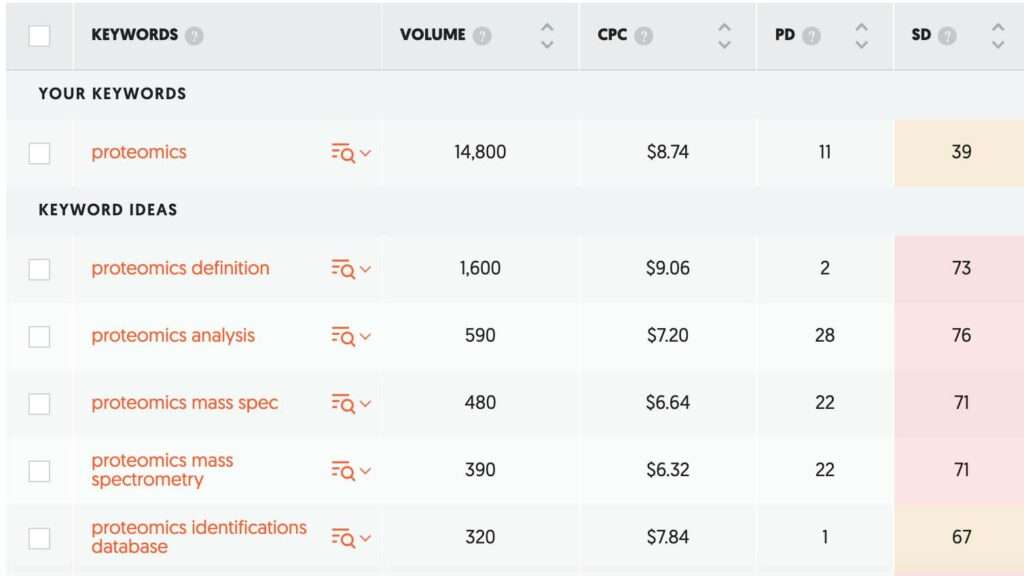
You can also use the question search to see the most frequently used terms in question form.
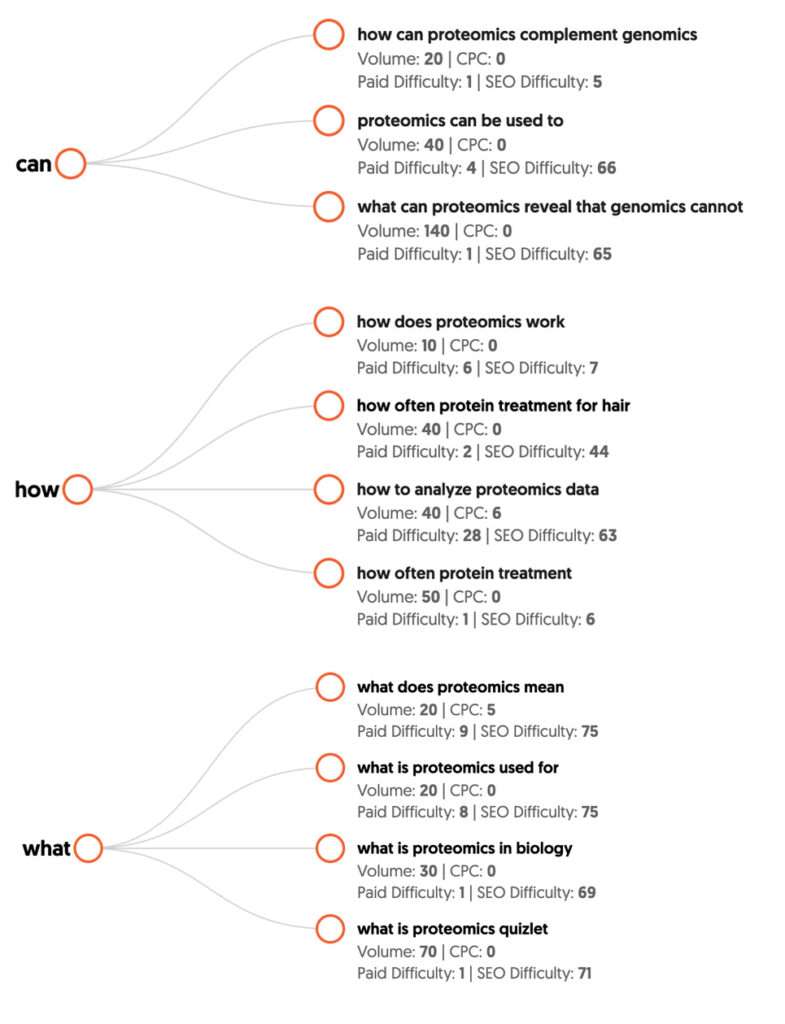
Find Ideas for your SEO Strategy and Keyword Optimization
You should go over the report and make a list of terms that you believe pertain to your company.
You probably don’t want to rank for terms like “proteomics journal” or “proteomics jobs” on Google.
On the other hand, you may choose to focus on “proteomics analysis” and “proteomics mass spec” if you own an analytical equipment, services, or solution company serving the life sciences industry.
Just keep doing this with any additional keywords that come to mind. Using a keyword generator, you can find even more inspirations and keyword ideas by searching additional for terms like “biomarkers” and “sequencing” and similar ones.
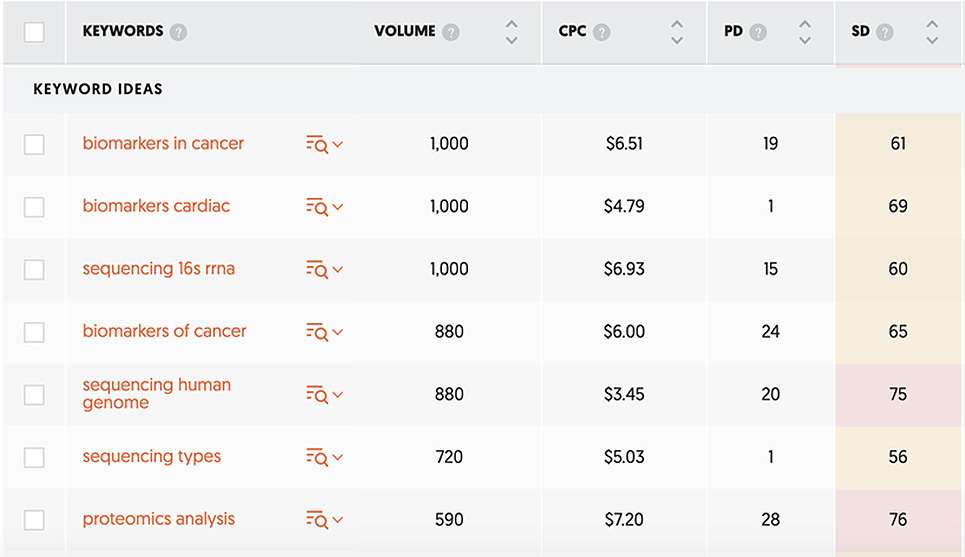
2. Give Your Life Science Audience Content They Desire
To improve your search engine rankings, you should create material that answers questions people are actively trying to find answers to. This is because Google aims to provide users with the most useful search results possible.
Just how do you accomplish that?

Recognize The Intent Behind the Search and Create Content that Serves the Need
There is always a purpose behind a person’s use of Google. Perhaps they have a question, need directions to a specific webpage, or wish to make a purchase.
Whatever it is, you need to know why they’re clicking, so you can tailor your content to their needs. SEO professionals refer to this phenomenon as “search intent.”
In some cases, the solution can be found in the question. When someone types in “how to analyze proteomics data,” they’re probably looking for education on how to solve an analytical problem.
But how about “best sequencing technology” as a topic? Is it your goal to provide a recommendation, evaluate, or rank the best solutions or methods available?
Thankfully, Google has ranked the most relevant results for us to peruse. The most popular pages can therefore serve as a proxy for user preferences. For the term “best sequencing technology,” the search results contain blog posts that recommend specific solutions or companies.
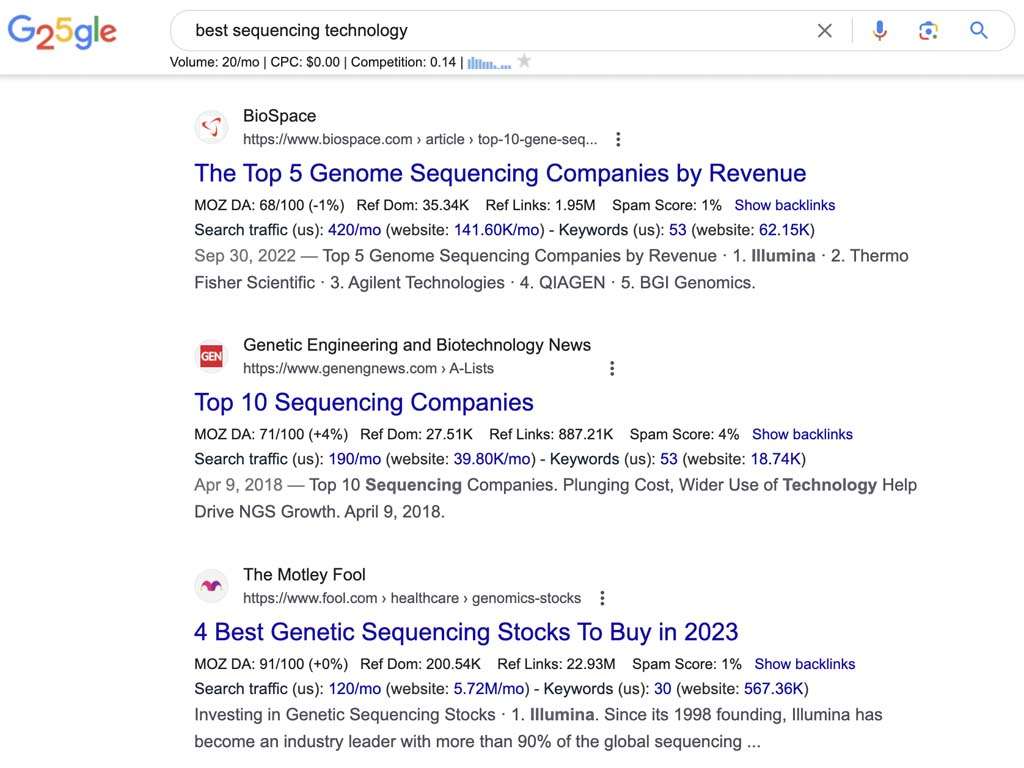
This indicates that individuals are not actively shopping online, but rather conducting research. Therefore, attempting to boost search engine rankings for a product page is pointless.
Create Content for Relevant Search Results to Address All of Their Concerns
Your content or SEO copy will need to answer specific questions. You must include these to make your page as helpful for searchers as possible.
Say, as an illustration, your intended search term is “how to analyze proteomics data.” If you’re a life science or biotech expert, your solution, or product benefits usually jump out at you. It’s natural to want to instruct those who are doing a search on how to use your product.
This is reasonable. However, if you browse a couple of the top-ranking pages, you’ll see that they don’t solely discuss products. Each one of them is mostly educational and discusses different methods or solutions.
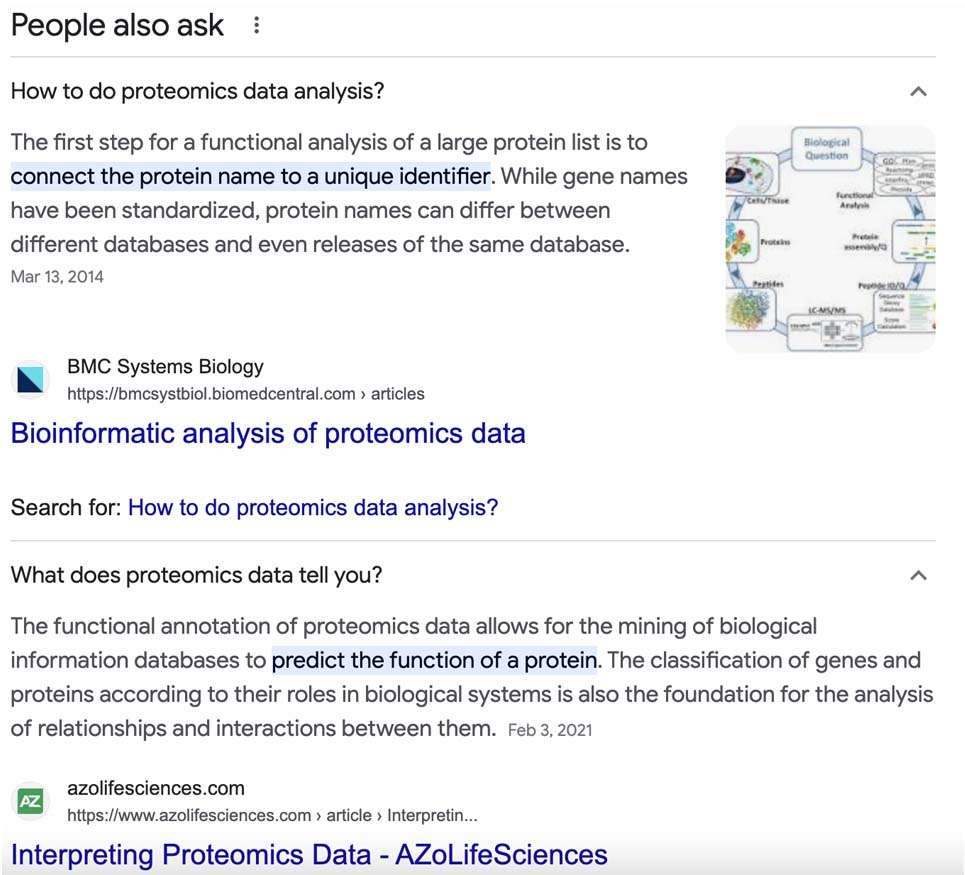
When you put it like this, it makes perfect sense. Many people who use the internet to research might want to find and compare different or alternative solutions to their problems. Unless you inform them in detail how to solve their problem, your content will fall short of meeting the needs of some, if not the majority of searchers.
Of course, this does not imply that you must include all available answers, solutions, or methods. Explain why some a bad idea if they don’t work. However, providing alternative options or solutions is unavoidable to address all the searchers’ concerns.
3. Demonstrate to Google why your content should rank
Links from other websites play an essential role in ranking. Google even stated as much.
This is because Google sees links as a form of social proof. These votes assist Google in determining which page on a topic (out of thousands) deserves to be ranked first.
As a result, pages with more backlinks tend to rank better in search results.
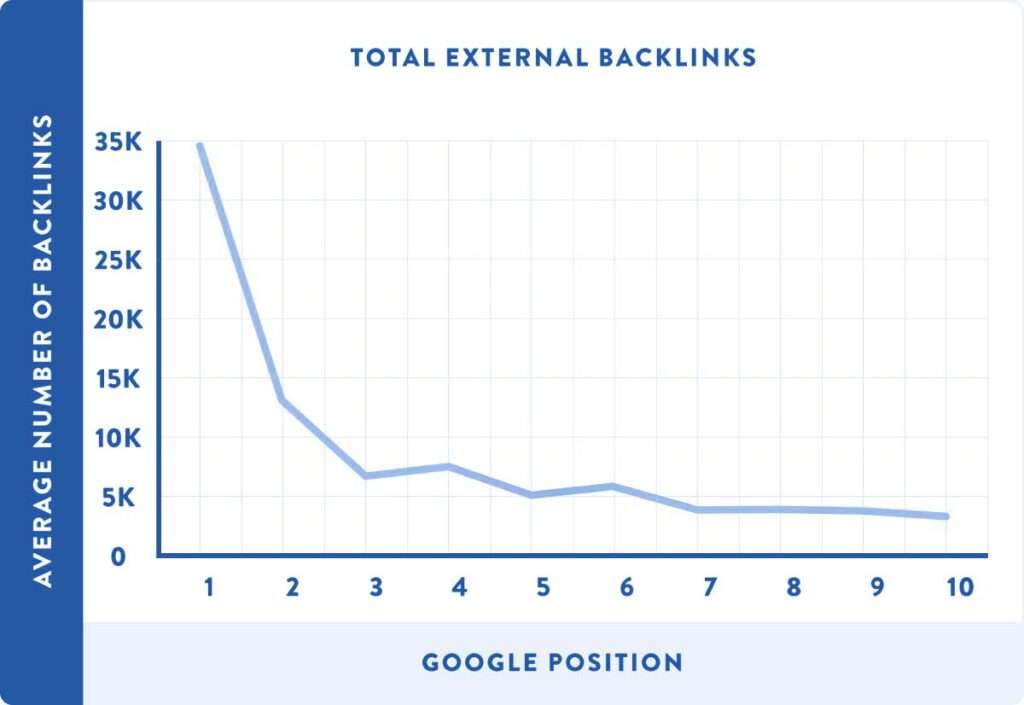
Source: Backlinko
Therefore, get additional references backlinking to your page if you want a higher search engine ranking.
Make it easier for visitors to come across your page.
Have you ever lost track of time when you browse through social media, or if you watch Netflix, or if you read on Wikipedia, following link after link, and finally realizing that hours had passed? You have entered the rabbit hole, which runs on links within itself.
“Internal links” refer to other pages on the same domain. It’s how numerous people find out about cool new blogs. New webpages are uncovered in the same way by Google. Therefore, you should always include internal links in your material.

However, you shouldn’t just add links from any old page on your site. You should only include them on popular pages. Popular pages are more likely to have higher authority and link value, which can be transferred to other pages via internal linking.
In addition, linking to less popular pages may dilute the link value of a website’s most essential pages.
Therefore, it is critical to carefully consider which internal pages to link to and to prioritize linking to the website’s most important and popular pages.

Encourage other websites to include a link to your website
If you want other website owners to link to you, you must offer them a compelling reason to do so. Because of this, guest blogging is an excellent link-building strategy.
Writing a blog post for publication on another person’s or organization’s website is known as “guest blogging.” The “offer” is straightforward: I’ll provide you with free content in exchange for allowing me to link back to my website.
Final words on SEO in Life Science Business
SEO is a simple process. All you have to do is:
- Figure out what people are actively looking for
- Deliver relevant quality content to them
- Give Google reasons to rank your page
Does that make it sound simple?
I wish it would be that simple. In reality, it will require grit and effort to beat competition, especially if you’re in a competitive industry because you’re competing with people who do the same thing. Alternatively, your industry may not take SEO seriously. Great! Make an effort to surpass the competition and leave them behind you.
Either way, SEO may not be for you if you’re impatient (SEO takes time) or reluctant to put in the effort. But those who are willing to invest time and effort into SEO will be rewarded long-term.
Frequently Asked Questions
How can analytics and SEO tools improve my website’s performance?
Analytics provide valuable insights into user behavior, search queries, and the overall performance of your website in search engine results pages. By using SEO tools, such as Google Search Console and other technical SEO platforms, you can identify areas of improvement, track your SEO ranking, and understand the effectiveness of your content marketing strategy. These tools, combined with a well-planned digital marketing strategy, can significantly improve your organic search visibility and drive more targeted traffic to your site.
What is the difference between on-page and off-page SEO, and why are both crucial?
On-page SEO focuses on optimizing individual pages of your website, encompassing aspects like content, design, and technical elements. This includes keyword optimization, meta tags, and ensuring a responsive design. Off-page SEO, on the other hand, relates to external tactics used to improve your site’s authority and reputation, such as link building and SMO (Social Media Optimization). Both are essential as they work in tandem to improve your SEO ranking and visibility in search engine results.
Why is SEO particularly important for life science companies?
Life science companies operate in a niche yet impactful sector. SEO for life science ensures that these companies reach their target audience effectively, be it researchers, medical professionals, or patients. A tailored content marketing strategy, combined with custom SEO strategies, ensures that life science content marketing resonates with the right audience. Given the specialized nature of this field, sourcing life science SEO services from a sector specialist life science SEO agency can result in more targeted and effective SEO efforts.
If I’m new to the world of SEO, where should I begin, and what should I prioritize?
Begin with the basics of SEO, understanding the difference between on-page and off-page SEO, and the crucial factors that influence search engine results. Keyword research for SEO is a foundational step, helping you understand what your target audience is searching for. As you delve deeper, consider using SEO tools to refine your strategy and monitor your progress. Remember, SEO is a long-term commitment, and its landscape is ever-evolving. Seeking guidance from SEO experts or an SEO agency can provide practical insights and effective SEO strategies tailored to your needs.
What are some crucial SEO metrics I should be aware of, and how can they guide my optimization strategy?
SEO metrics provide insights into the effectiveness of your efforts. Some of the most useful SEO metrics include organic traffic, bounce rate, and conversion rates. For those in the life sciences sector, understanding how SEO comes into play can be a game-changer. For instance, tracking how a guide to life science or an ultimate guide to life science SEO performs can offer insights into audience engagement and content relevance. Another crucial factor in SEO is continuous learning and adaptation. Consider scheduling an SEO consultation call to delve deeper into specific aspects of SEO tailored to your needs. Remember, in the ever-evolving world of online marketing, staying updated on the latest aspects of SEO and leveraging the services offered by life science experts can significantly enhance your strategy’s success.
No related posts.

